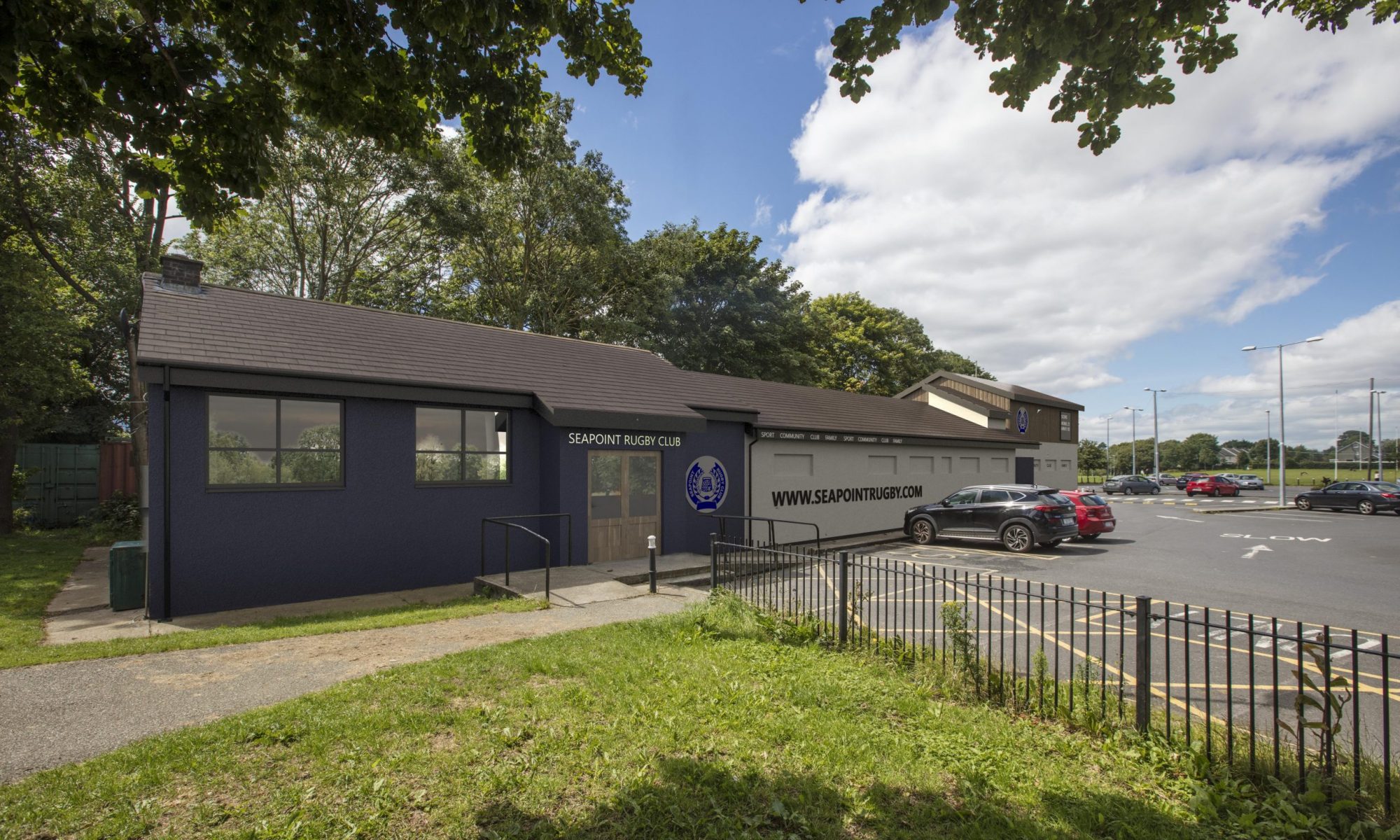1945/46 was the first season that Seapoint played Junior Football (Junior 1). Encouraged by their success the previous year when they won their section of the Minor league they made the decision to go Junior. Playing strength was good and with an efficient administration guiding their fortunes (Captain P. J. Lyons, Secretary the late Dick Ryder and Treasurer Cyril McElree), everything looked rosy. However, two bad playing seasons and lack of facilities at the ground in Newtownpark Avenue, also lack of finance to improve the facilities caused a falling off in membership and we lost a great number of very strong players to senior or more prosperous Junior Clubs. After the 1947/48 season the committee decided to step down to Minor ranks (Junior II) and Seapoint did not regain Junior status again until our promotion in 1977/78. From 1948/49 it was a question of survival and those who remained with the club made great efforts to recruit young members and in order to continue to field one or at the best, two teams per week. In most cases the young members had no knowledge of the fundamentals of the game and so wins were not frequent. However, they were a hardy lot and never daunted by taking the field with 2 or 3 players short. No showers after a match and constant heavy defeats, they turned out week after week. Such was the spirit of Seapoint.
It is significant that many of these young coarse Rugby players remained with the club and performed Trojan work both on the field and in administration during the late fifties and early sixties when the future of the club was assured. Some are still to be found serving on various committees today.
Conditions were completely different in those days. The bicycle was the prime means of transport to a match. When it was reported by a player that a large group of Dalkey supporters were walking up Newtownpark Avenue to cheer the team, one of our players (Henry Ford, a great capitalist) made a quick dash home by bicycle, grabbed a green baize card table and a stool, Stationed himself outside the ground and collected a gate from the Dalkey supporters. As far as I know this was the only gate money ever collected by Seapoint at a home match.
By 1951/52 we were travelling again to the provincial towns. Navan, Naas, Arklow, Drogheda and Dundalk were all visited and good friendships were created, which exist to this day. Transport to the provinces was by one or two pre-war bangers, plus a couple of reliable cars provided by members of the club who were reps in the rag trade. The bangers commenced the journey two hours before the main party to allow for breakdowns.
Characters abounded in the club. The late Bud Joyce emigrated to South America and played for the Bolivian International team, and you all thought that Joe Brady was the first Seapoint player who gained international honours! Mick O’Neill who had a romantic interest in the Lucan area and walked from Lucan to Blackrock every night or early morning of the week. Mau Mau O’Kelly, P. V. Dowling, Tea Leaf O’Sullivan and others too numerous to mention. In 1952/53 with P. McHale as Club Captain, we won our first trophy, albeit an unofficial one. The Carlow Seven-a-Side competition. At this stage we had begun to notch up a few victories in the Minor League and although we never went near to winning a section we did prevent a number of other clubs from winning.
By the mid 1950s the threat of eviction from Newtownpark had loomed up and we moved to Springhill on the Bray Road where we enjoyed or endured an uneasy existence for a few seasons. It was at this stage of our history that the reflux of CBC Players began. Bill Freeney first and foremost, who afterwards captained the Club for three seasons and guided our fortunes through a difficult period. Liam Hallidon, a Belvedere school player who captained the club for a couple of seasons and kept our flag flying when a lesser man would have called surrender and the new generation of players Jim Byrden, Ger White, Squire Martin and Liam Fitzpatrick, all of whom have served the club so well in all capacities for so many years.
I leave it to others to recount the trials and tribulations of the late fifties and afterwards and I hope in recalling the events of the late forties and early fifties I have awakened memories for some and have given the present generation members an insight into a part of the history of our great club.
